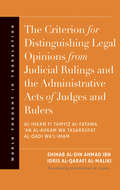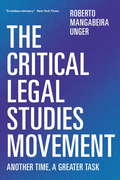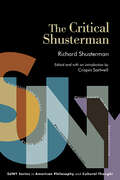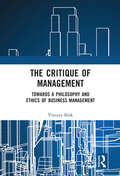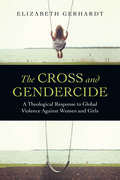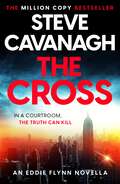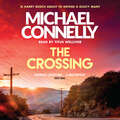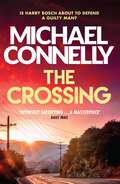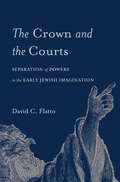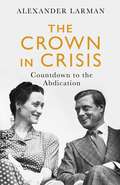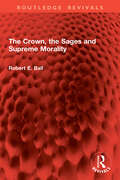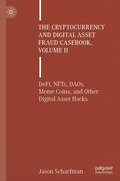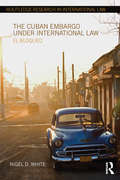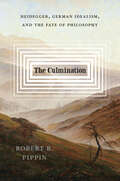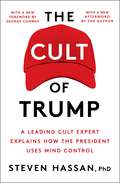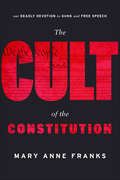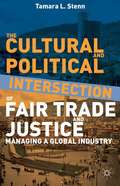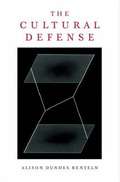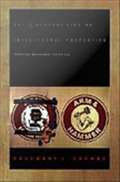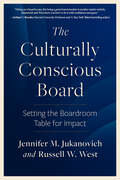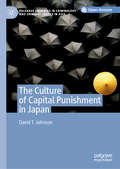- Table View
- List View
The Criterion for Distinguishing Legal Opinions from Judicial Rulings and the Administrative Acts of Judges and Rulers
by Mohammad H. Fadel Shihab al-Din al-Qarafi al-MalikiThe first and much-needed English translation of a thirteenth-century text that shaped the development of Islamic law in the late middle ages. Scholars of Islamic law can find few English language translations of foundational Islamic legal texts, particularly from the understudied Mamluk era. In this edition of the Tamyiz, Mohammad Fadel addresses this gap, finally making the great Muslim jurist Shihab al-Din al-Qarafi’s seminal work available to a wider audience. Al-Qarafi’s examination of the distinctions among judicial rulings, which were final and unassailable, legal opinions, which were advisory and not binding, and administrative actions, which were binding but amenable to subsequent revision, remained standard for centuries and are still actively debated today.
The Critical Legal Studies Movement
by Roberto Mangabeira UngerCritical legal studies is the most important development in progressive thinking about law of the past half century. It has inspired the practice of legal analysis as institutional imagination, exploring, with the materials of the law, alternatives for society. The Critical Legal Studies Movement was written as the manifesto of the movement by its central figure. This new edition includes a revised version of the original text, preceded by an extended essay in which its author discusses what is happening now and what should happen next in legal thought.From the Trade Paperback edition.
The Critical Shusterman (SUNY series in American Philosophy and Cultural Thought)
by Richard ShustermanCollecting sixteen key texts on a broad range of key philosophical topics enables readers to perceive the scope of Shusterman's philosophy and appreciate its systematic aspects.Richard Shusterman is one of today's foremost philosophers. His influential and widely translated work is distinctive for its originality and its integration of multiple philosophical perspectives (analytic philosophy, phenomenology, hermeneutics, critical theory, and East Asian thought) to create a new transcultural pragmatist vision. Although most famous for his groundbreaking writings in aesthetics, somatic philosophy, and philosophy as an art of living, these texts are integrally connected with Shusterman's vital views on ontology, epistemology, and philosophy of mind, ethics, and politics. Collecting sixteen key texts on this broad range of topics, The Critical Shusterman enables readers to perceive the scope of Shusterman's philosophy and appreciate its systematic aspects. Editor Crispin Sartwell's superb introduction highlights those aspects in assessing Shusterman's thought in the context of contemporary philosophy while suggesting ways that Shusterman's project could be developed in the future.
The Critique of Management: Towards a Philosophy and Ethics of Business Management
by Vincent BlokThis book reflects on the nature of business management to contribute to the development of a philosophy and ethics of management. It engages in conceptual engineering of management to delineate the phenomenon of management and, as a result, to open a new perspective on management beyond its self-evident conceptualization. After questioning the self-evident concept of management, the author develops a philosophy of management with six dimensions of the nature of management: management as participation; management as resistance and responsive action; management as constitution of meaning; management as politico-economic governance; management as non-reductive stakeholder engagement; and management as epistemic insufficient entrepreneurship. These six dimensions of management are taken as points of departure to develop an integrated concept of business ethics, an individual competence for ethical business management, and a concept of ethical codes for corporate social responsible behavior. This new conception of philosophy of management and business ethics can guide future philosophical and empirical work on the nature of management. The Critique of Management is an excellent resource for researchers, students, and professionals interested in philosophy of management, business ethics, and corporate social responsibility.
The Cross and Gendercide: A Theological Response to Global Violence Against Women and Girls
by Elizabeth GerhardtViolence against women and girls is a human rights epidemic that affects millions of lives around the world. While many Christians are addressing this crisis through education, advocacy and philanthropic support, there has been a reluctance to name gendercide as a theological and confessional issue, a matter that strikes at the very essence of the Christian faith. In The Cross and Gendercide, Elizabeth Gerhardt draws on Luther's "theology of the cross" to provide a theological basis for naming and responding to the grave sin of global gendercide. She lifts up the work and witness of Dietrich Bonhoeffer as an especially powerful resource for mobilizing the church today toward political action and social engagement. From the perspective of Christ's cross, the church must raise a prophetic voice against systemic violence and speak up for the myriad women and girls who are invisible and voiceless in the world today.
The Cross of War
by Matthew Mccullough"The Cross of War" documents the rise of "messianic interventionism"-the belief that America can and should intervene altruistically on behalf of other nations. This stance was first embraced in the Spanish-American War of 1898, a war that marked the dramatic emergence of the United States as an active world power and set the stage for the foreign policy of the next one hundred years. Responding to the circumstances of this war, an array of Christian leaders carefully articulated and defended the notion that America was responsible under God to extend freedom around the world-by force, if necessary. Drawing from a wide range of sermons and religious periodicals across regional and denominational lines, Matthew McCullough describes the ways that many American Christians came to celebrate military intervention as a messianic sacrifice, to trace the hand of God in a victory more painless and complete than anyone had imagined, and to justify the shift in American foreign policy as a divine calling.
The Cross: An Eddie Flynn Novella
by Steve CavanaghAn exclusive race against time ebook short thriller.**Contains an extract from Steve Cavanagh's brilliant debut novel, THE DEFENCE** Eddie Flynn, con-man turned criminal lawyer, has an impossible choice.He has damning evidence against a corrupt NYPD detective who stands accused of killing a suspect.But if he uses this evidence in court, both he and his client - the dead man's widow - will be in mortal danger.Should he risk their lives to win the case? Or keep quiet and let a murderer go free.'Everything a great thriller should be and I can't wait to see more of Eddie Flynn.' Mark Billingham'Jack Reacher's younger, hotter-headed brother.' Irish Times
The Cross: An Eddie Flynn Novella
by Steve CavanaghAn exclusive race against time ebook short thriller.**Contains an extract from Steve Cavanagh's brilliant debut novel, THE DEFENCE** Eddie Flynn, con-man turned criminal lawyer, has an impossible choice.He has damning evidence against a corrupt NYPD detective who stands accused of killing a suspect.But if he uses this evidence in court, both he and his client - the dead man's widow - will be in mortal danger.Should he risk their lives to win the case? Or keep quiet and let a murderer go free.'Everything a great thriller should be and I can't wait to see more of Eddie Flynn.' Mark Billingham'Jack Reacher's younger, hotter-headed brother.' Irish Times
The Crossing (Harry Bosch Series #18)
by Michael ConnellySix months ago, Harry Bosch left the LAPD before they could fire him, and then hired maverick Defense Attorney Mickey Haller to sue the department for forcing him out. Although it wasn't the way he wanted to go, Harry has to admit that being out of the game has its benefits. Until Mickey asks him to help on one of his cases, and suddenly Harry is back where he belongs, right in the centre of a particularly puzzling murder mystery. The difference is, this time Harry is working for the defense, aiming to prevent the accused, Da'Quan Foster, from being convicted. And not only does the prosecution seem to have a cast-iron case, but having crossed over to 'the dark side' as his former colleagues would put it, Harry is in danger of betraying the very principles he's lived by his whole career.Read by the star of BOSCH, Titus Welliver(p) 2015 Hachette Audio
The Crossing (Harry Bosch Series #18)
by Michael ConnellySix months ago, Harry Bosch left the LAPD before they could fire him, and then hired maverick Defense Attorney Mickey Haller to sue the department for forcing him out. Although it wasn't the way he wanted to go, Harry has to admit that being out of the game has its benefits. Until Mickey asks him to help on one of his cases, and suddenly Harry is back where he belongs, right in the centre of a particularly puzzling murder mystery. The difference is, this time Harry is working for the defense, aiming to prevent the accused, Da'Quan Foster, from being convicted. And not only does the prosecution seem to have a cast-iron case, but having crossed over to 'the dark side' as his former colleagues would put it, Harry is in danger of betraying the very principles he's lived by his whole career.
The Crossroads of Competition Law and Energy Regulation
by Laura RimšaitėThis book explores the delicate balance between fostering competitive energy markets and ensuring effective regulation. It addresses the difficulty of reconciling competitive market dynamics with regulatory objectives such as ensuring reliability, fairness, and sustainability. In the highly dynamic energy sector, the convergence of competition law and energy regulation is a critical factor that greatly influences the trajectory of energy markets. The intersection of these significant domains can be complex and transformative when the goals of fostering fair competition and guaranteeing dependable and eco-friendly energy provision coincide. Market power in the energy sector can lead to a concentration of power among a handful of firms, which can hinder competition and limit consumer options. The dual objective of tackling market dominance and promoting energy security constitutes a significant challenge. In turn, the book discusses the challenges posed by natural monopolies in energy networks, the need for regulatory frameworks to support investment in infrastructure and renewable energy, and the complexities of price fluctuations. The topic of market dominance is also considered, as dominant corporations are capable of controlling prices and suppressing competition, resulting in higher prices for consumers and stifling innovation. The book offers valuable perspectives on creating a regulatory framework that promotes fair competition and achieves long-term policy goals in the energy sector. To do so, it draws on case studies and analyses from various countries.
The Crown and the Courts: Separation Of Powers In The Early Jewish Imagination
by David C. FlattoA scholar of law and religion uncovers a surprising origin story behind the idea of the separation of powers.The separation of powers is a bedrock of modern constitutionalism, but striking antecedents were developed centuries earlier, by Jewish scholars and rabbis of antiquity. Attending carefully to their seminal works and the historical milieu, David Flatto shows how a foundation of democratic rule was contemplated and justified long before liberal democracy was born.During the formative Second Temple and early rabbinic eras (the fourth century BCE to the third century CE), Jewish thinkers had to confront the nature of legal authority from the standpoint of the disempowered. Jews struggled against the idea that a legal authority stemming from God could reside in the hands of an imperious ruler (even a hypothetical Judaic monarch). Instead scholars and rabbis argued that such authority lay with independent courts and the law itself. Over time, they proposed various permutations of this ideal. Many of these envisioned distinct juridical and political powers, with a supreme law demarcating the respective jurisdictions of each sphere. Flatto explores key Second Temple and rabbinic writings—the Qumran scrolls; the philosophy and history of Philo and Josephus; the Mishnah, Tosefta, Midrash, and Talmud—to uncover these transformative notions of governance.The Crown and the Courts argues that by proclaiming the supremacy of law in the absence of power, postbiblical thinkers emphasized the centrality of law in the people’s covenant with God, helping to revitalize Jewish life and establish allegiance to legal order. These scholars proved not only creative but also prescient. Their profound ideas about the autonomy of law reverberate to this day.
The Crown in Crisis: Countdown to the Abdication
by Alexander LarmanIn December 1936, Britain faced a constitutional crisis that was the gravest threat to the institution of the monarchy since the execution of Charles I. The ruling monarch, Edward VIII, wished to marry the American divorcée Wallis Simpson and crown her as his Queen. His actions scandalised the Establishment, who were desperate to avoid an international embarrassment at a time when war seemed imminent.An influential coalition formed against him, including the Prime Minister Stanley Baldwin, his private secretary Alec Hardinge, the Archbishop of Canterbury and the editor of The Times. Edward seemed fated to give up Wallis and remain a reluctant ruler, or to abdicate his throne. Yet he had his own supporters, too, including Winston Churchill, the Machiavellian newspaper proprietor Lord Beaverbrook and his brilliant adviser Walter Monckton. They offered him the chance to remain on the throne and keep Wallis. But was the price they asked too high?Using previously unpublished and rare archival material, and new interviews with those who knew Edward and Wallis, The Crown in Crisis is the conclusive exploration of how an unthinkable and unprecedented event tore the country apart. This seismic event has been written about before but never with the ticking-clock suspense and pace of the thriller that it undoubtedly was for all of its participants. Painstakingly researched, incisively written and entirely fresh in its approach, The Crown in Crisis brings the events of that time to thrilling life, and in the process will appeal to an entirely new audience.
The Crown, the Sages and Supreme Morality (Routledge Revivals)
by Robert E. BallFirst published in 1983, in The Crown, the Sages and Supreme Morality the first account of the universal science of Supreme Morality, or Moralogy, to be published in the West, Robert Ball shows how it is based on the moral teaching of Christ, Buddha, Confucius and Socrates, and is influenced by ancient Chinese thought. He shows that morality stresses the lines of authority- national, spiritual and family-that are inherent in all relationships. As a former Master of the Supreme Court closely involved in the organization and supervision of legal process, Mr Ball is much concerned to reinforce the position of the British Crown on a theoretical basis, and he therefore examines in detail monarchy and its possible future role in a changing world. The discussion also extends to other matters, such as commerce, politics and religion in an evolutionary context. The author concludes by identifying morality as the key to Britain’s self-restoration and the necessary thread in human evolution. This is an interesting work for students and scholars of philosophy, religion, philosophy of religion, and social anthropology.
The Cryptocurrency and Digital Asset Fraud Casebook, Volume II: DeFi, NFTs, DAOs, Meme Coins, and Other Digital Asset Hacks
by Jason ScharfmanCryptocurrencies and digital assets have continued to gain widespread acceptance from both retail and institutional investors. As part of this continued growth, there has been an unfortunate series of ongoing and increasingly sophisticated frauds, Ponzi schemes, and hacks that have cost investors billions of dollars. Since the publication of the original Cryptocurrency and Digital Asset Fraud Casebook, conservative estimates indicate that there have been thousands of new digital asset fraud cases that have contributed to billions in broadening losses in space. Beyond the digital asset space, cryptocurrency-related scams also continue to present increasingly meaningful threats to traditional finance institutions, the global economy, and national security, as well. These new challenges, combined with the ongoing evolving regulatory environment for digital assets, create an environment where there is a continued need for the up-to-date information and analysis of real-world case studies. It includes an up-to-date analysis of recent case studies in cryptocurrency and digital asset fraud alongside an analysis of recent decentralized finance (DeFi) hacks, smart contract attacks, and rug pulls. This book reviews the impact of digital asset bankruptcies, the FTX fraud, and the industry-wide post-FTX fallout on the growth of cryptocurrency fraud. It also examines the explosive growth of cryptocurrency romance scams, pig butchering, and related organized crime money laundering efforts and includes a related exclusive case study. Offering an in-depth examination of digital asset frauds in the gaming, metaverse, and NFT spaces, it also covers Decentralized Autonomous Organization (DAO) fraud, smart contract attacks, dApp scams, crypto asset manager investment fraud, mining fraud, honeypots, meme coins, and artificial intelligence-based digital asset fraud. Leveraging the author’s experience analyzing and implementing compliance and operations best practices with a variety of cryptocurrency and digital asset projects and consulting with international regulators on blockchain and digital asset policy, this book will be of interest to those working throughout the cryptocurrency and digital asset space including Web 3.0 builders and service providers including lawyers, auditors, blockchain infrastructure, regulators, governments, retail investors, and institutional investors.
The Cuban Embargo under International Law: El Bloqueo (Routledge Research in International Law)
by Nigel D. WhiteThe United States embargo against Cuba was imposed over fifty years ago initially as a response to the new revolutionary government's seizure of US properties, which was viewed by the US as a violation of international law. However, while sanctions can be legitimate means of enforcing established norms, the Cuban embargo itself appears to be the wrongful act, and its persistence calls into question the importance and function of international law. This book examines the history, legality and effects of US sanctions against Cuba and argues that the embargo has largely become a matter of politics and ideology; subjecting Cuba to apparently illegitimate coercion that has resulted in a prolonged global toleration of what appears to be a serious violation of international law. The book demonstrates how the Cuban embargo undermines the use of sanctions world-wide, and asks whether the refusal of world governments to address the illegality of the embargo reduces international law to tokenism where concepts of sovereign equality and non-intervention are no longer a priority. Despite the weaknesses of international law, Nigel D. White argues that in certain political conditions it will be possible to end the embargo as part of a bilateral agreement to restore normal relations between the US and Cuba and, furthermore, that such an agreement, if it is to succeed, will have to be shaped by the broad parameters of law and justice. As a fierce re-evaluation of international law through the story of a country under siege, this book will be of great interest and use to researchers and students of public international law, international relations, and US and Latin American politics.
The Culmination: Heidegger, German Idealism, and the Fate of Philosophy
by Robert B. PippinA provocative reassessment of Heidegger’s critique of German Idealism from one of the tradition’s foremost interpreters. Heidegger claimed that Western philosophy ended—failed, even—in the German Idealist tradition. In The Culmination, Robert B. Pippin explores the ramifications of this charge through a masterful survey of Western philosophy, especially Heidegger’s critiques of Hegel and Kant. Pippin argues that Heidegger’s basic concern was to determine sources of meaning for human life, particularly those that had been obscured by Western philosophy’s attention to reason. The Culmination offers a new interpretation of Heidegger, German Idealism, and the fate of Western rationalism.
The Cult of Trump: A Leading Cult Expert Explains How the President Uses Mind Control
by Steven Hassan*As featured in the streaming documentary #UNTRUTH—now with a new foreword by George Conway and an afterword by the author* A masterful and eye-opening examination of Trump and the coercive control tactics he uses to build a fanatical devotion in his supporters written by &“an authority on breaking away from cults…an argument that…bears consideration as the next election cycle heats up&” (Kirkus Reviews). Since the 2016 election, Donald Trump&’s behavior has become both more disturbing and yet increasingly familiar. He relies on phrases like, &“fake news,&” &“build the wall,&” and continues to spread the divisive mentality of us-vs.-them. He lies constantly, has no conscience, never admits when he is wrong, and projects all of his shortcomings on to others. He has become more authoritarian, more outrageous, and yet many of his followers remain blindly devoted. Scott Adams, the creator of Dilbert and a major Trump supporter, calls him one of the most persuasive people living. His need to squash alternate information and his insistence of constant ego stroking are all characteristics of other famous leaders—cult leaders. In The Cult of Trump, mind control and licensed mental health expert Steven Hassan draws parallels between our current president and people like Jim Jones, David Koresh, Ron Hubbard, and Sun Myung Moon, arguing that this presidency is in many ways like a destructive cult. He specifically details the ways in which people are influenced through an array of social psychology methods and how they become fiercely loyal and obedient. Hassan was a former &“Moonie&” himself, and he presents a &“thoughtful and well-researched analysis of some of the most puzzling aspects of the current presidency, including the remarkable passivity of fellow Republicans [and] the gross pandering of many members of the press&” (Thomas G. Gutheil, MD and professor of psychiatry, Harvard Medical School). The Cult of Trump is an accessible and in-depth analysis of the president, showing that under the right circumstances, even sane, rational, well-adjusted people can be persuaded to believe the most outrageous ideas. &“This book is a must for anyone who wants to understand the current political climate&” (Judith Stevens-Long, PhD and author of Living Well, Dying Well).
The Cult of the Constitution: Our Deadly Devotion to Guns and Free Speech
by Mary Anne FranksIn this controversial and provocative book, Mary Anne Franks examines the thin line between constitutional fidelity and constitutional fundamentalism. The Cult of the Constitution reveals how deep fundamentalist strains in both conservative and liberal American thought keep the Constitution in the service of white male supremacy. Constitutional fundamentalists read the Constitution selectively and self-servingly. Fundamentalist interpretations of the Constitution elevate certain constitutional rights above all others, benefit the most powerful members of society, and undermine the integrity of the document as a whole. The conservative fetish for the Second Amendment (enforced by groups such as the NRA) provides an obvious example of constitutional fundamentalism; the liberal fetish for the First Amendment (enforced by groups such as the ACLU) is less obvious but no less influential. Economic and civil libertarianism have increasingly merged to produce a deregulatory, "free-market" approach to constitutional rights that achieves fullest expression in the idealization of the Internet. The worship of guns, speech, and the Internet in the name of the Constitution has blurred the boundaries between conduct and speech and between veneration and violence. But the Constitution itself contains the antidote to fundamentalism. The Cult of the Constitution lays bare the dark, antidemocratic consequences of constitutional fundamentalism and urges readers to take the Constitution seriously, not selectively.
The Cultural And Political Intersection Of Fair Trade And Justice
by Tamara L. StennThe Cultural and Political Intersection of Fair Trade and Justice is an ethnographic study of the effects of Fair Trade on indigenous women, as reported by the women themselves, and seeks to develop a deeper understanding of Fair Trade, globalization, culture, and policy in building justice.
The Cultural Defense
by Alison Dundes RentelnIn what ways and to what extent should cultural background be taken into consideration in response to legal problems? The first book-length study of the topic, The Cultural Defense provides a comprehensive overview of the debate surrounding the admissibility of cultural evidence in the courtroom. Documenting an extraordinary range of cases in which individuals have attempted to invoke a cultural defense, this book provides an in-depth look at the complexities of invoking cultural arguments in the diverse bodies of law under which the cases fall. Cases considered include homicide and rape prosecutions, child abuse cases, drug use cases, the treatment of animals, and custody battles. Disputing current practices, Renteln contends that the cultural defense should, in both criminal and civil matters, be given formal recognition.
The Cultural Life of Intellectual Properties: Authorship, Appropriation, and the Law
by Rosemary J. CoombeLogos, trademarks, national insignia, brand names, celebrity images, design patents, and advertising texts are vibrant signs in a consumer culture governed by a regime of intellectual property laws. In The Cultural Life of Intellectual Properties, professor of law and cultural anthropologist Rosemary J. Coombe brings an illuminating ethnographic approach to an analysis of authorship and the role law plays in shaping the various meanings that animate these protected properties in the public sphere. Although such artifacts are ubiquitous in contemporary culture, little attention has been paid to the impact of intellectual property law in everyday life or to how ownership of specific intellectual properties is determined and exercised. Drawing on a wide range of cases, disputes, and local struggles, Coombe examines these issues and dismantles the legal assumption that the meaning and value of a text or image is produced exclusively by an individual author or that authorship has a single point of origin. In the process, she examines controversies that include the service of turbanned Sikhs in the Royal Canadian Mounted Police and the use of the term Olympic in reference to the proposed gay Olympic Games. Other chapters discuss the appropriation of such celebrity images as the Marx brothers, Judy Garland, Dolly Parton, James Dean, and Luke Skywalker; the conflict over team names such as the Washington Redskins; and the opposition of indigenous peoples to stereotypical Native American insignia proffered by the entertainment industry. Ultimately, she makes a case for redefining the political in commodified cultural environments. Significant for its insights into the political significance of current intellectual property law, this book also provides new perspectives on debates in cultural anthropology, cultural studies, and political theory. It will therefore interest both a wide scholarly and a general audience.
The Cultural Revolution on Trial: Mao and the Gang of Four (Studies of the Weatherhead East Asian Institute, Columbia University)
by Alexander C. CookThe trial of Cultural Revolution leaders, including Mao's widow and her Gang of Four, was the signal event in China's post-Mao transition. In its wake, Chinese socialism emerged from the rubble of the Cultural Revolution to create the China that we know today. This spectacular show trial was a curious example of transitional justice, marking a break from the trauma of the past, a shift to the present era of reform, and a blueprint for building a better future. In this groundbreaking reconstruction of the most famous trial in Chinese history, Alex Cook shows how the event laid the cornerstone for a new model of socialist justice; at the same time, a comparison of official political and legal sources with works of popular literature reveals the conflicted cultural dimensions of this justice. The result, Cook argues, saved Chinese socialism as ruling ideology, but at the cost of its revolutionary soul. Helps readers to conceptualize the contemporary era in historical perspective as one of the first historical works on post-Mao China.\ Draws on a rich archive of political, legal and literary sources. The first academic study of the most famous trial in Chinese history.
The Culturally Conscious Board: Setting the Boardroom Table for Impact
by Jennifer M. Jukanovich Russell W. WestThe definitive introduction for changemakers new to the world of nonprofit and small business boards of directors.Bust the status quo of board room administrative tedium and passive participation to contribute to meaningful social transformation and impact in your organization. Authors Jukanovich and West offer changemakers new to the boardroom the mindset and strategies necessary to make a difference in the organizations they lead.Mission-based, socially responsible, and transformational organizations are needed more today than ever. And the boards that lead them must be in tune with their stakeholder's culture. But so often they are held back by ineffective decision making and a lack of interpersonal trust.This book breaks down the key elements of a successful boardroom and how to achieve them. From onboarding diverse talent to establishing trust through accountability, you will have the tools and actionable techniques needed to effectively make a difference in the world with healthier boardroom practices.
The Culture of Capital Punishment in Japan (Palgrave Advances in Criminology and Criminal Justice in Asia)
by David T. JohnsonThis open access book provides a comparative perspective on capital punishment in Japan and the United States. Alongside the US, Japan is one of only a few developed democracies in the world which retains capital punishment and continues to carry out executions on a regular basis. There are some similarities between the two systems of capital punishment but there are also many striking differences. These include differences in capital jurisprudence, execution method, the nature and extent of secrecy surrounding death penalty deliberations and executions, institutional capacities to prevent and discover wrongful convictions, orientations to lay participation and to victim participation, and orientations to “democracy” and governance. Johnson also explores several fundamental issues about the ultimate criminal penalty, such as the proper role of citizen preferences in governing a system of punishment and the relevance of the feelings of victims and survivors.
